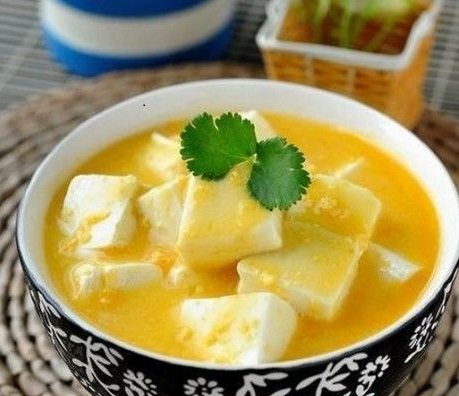Tofu or Snafu: Where Should We Stand on Soy?
Where do we stand on soy? Is it good or bad for our health? Tofu has become an important component of plant-based diet, which is known to have benefit on cardiovascular health, prevention on certain cancers and weight loss. It has high quality protein, calcium, phosphorus, iron and vitamins necessary for child growth and development.

However, some conflicting study results that soy may stimulate breast cancer cells. Meanwhile, many people are also allergic to soy, they may suffer from serious reactions after eating them. Many people are still scratching their head about whether soy is good, bad or obsolete. So where should we stand on soy?
Soy: natural, processed and fermented
Based on manufacturing process, soy have been categorized into three groups as natural, processed and fermented. Stangland, a famous dietitian noted that natural soy food is good for our health, while processed food is a little bit different.
“The health boost the soy offers depend on how it was manipulated”, said Dr. Cate Shanahan, a family physician who as well consults as a nutritionist in Connecticut. “In many Asian countries, people eat soy through an artificial fermented way, which to some extent offers different nutrition ingredients.”
Fermented soy contains amino acids, fatty acids and a variety of vitamins. Fermentation is the process by which microbes are used to produce thalli, direct or secondary metabolites in aerobic or anaerobic conditions. Fermentation is usually referred to as a biological process for organism decomposition, it is a kind of biochemical reaction which has been widely used in food, biological and chemical industry. For soy, people can get massive quantities of nutrients through culture, which is surely much better than the first two categories.
Cancer Defender
A pilot study, published in 1996, indicated that soy may linked to the high risk of breast cancer, since soy isoflavones can imitate estrogen in the body and are able to connect to estrogen receptors. And we all know that estrogen levels are related to the development of certain cancers for women.
However, some recent scientific study claims the soy’s innocence. “Alpha and beta are the two estrogen receptors in human body. Beta is the good one which reduces the risk of growing breast cancer while alpha causes the opposite effect. And as a matter of fact, soy isoflavones prefer estrogen receptor beta, so there is no need to worry about that”, said Kucuk, a medical oncologist.
A new research may put that argument to a rest. According to a study published in journal Cancer, which involves 6,235 North American women with breast cancer. These participants have been tracked on their cancer survival and death rate from 1995 to 2005. Irrelevant factors such as weight, habits and socioeconomic status are strictly controlled. Zhang and her colleagues have a close look into these women’s data, which is provided by the Breast Cancer Family Registry, an international database.
Women who consumed the most soy isoflavones have both the highest 9-year survival rate and the lowest death rate. Compared to women who have less isoflavones, they have 21% more opportunity to live a longer life, the researchers said. Related survey also indicated that Asian women who consume soy as primary diet are more likely to lead a longer life than people who are used to western diet.
“This study proves that soy consumption is not only safe but also can decrease the mortality for cancer patients,” said Kucuk, “This study is probably the strongest one we have at this moment, and we need more in the future. This could be a good start.”
You may also be interested in
Testimonials
- Adenomyosis with Ureaplasma Urealyticum Cured by Fuyan Pill
- Tubal blockage with hydrosalpinx can be cured by TCM shortly
- Fuyan Pill Helps A woman with Adenomyosis Get Pregnant
- A Woman with Hydrosalpinx Is Cured with Fuyan pill
- Pelvic Inflammatory Disease Testimonials
- Irregular Vaginal Bleeding and Endometrial Thickening Cured by Fuyan Pill
- Pruritus Vulvae and Frequent Urination: Mycoplasma Infection Cured after 2 Courses



